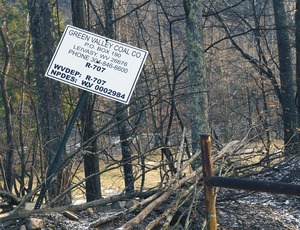
Edmund C. Scarborough, who owned the biggest and most public individual surety business in the U.S., once claimed that his guarantees were backed by solid assets comprised of valuable coal waste.
In federal bankruptcy court in Tampa July 17, Scarborough and his wife, Yvonne, filed for protection from their creditors, listing assets of $4.5 million and liabilities of $16.2 million.
The 70-page filing states that the main business asset held by the debtors is IBCS Mining, a Charlottesville, Va., based company that Scarborough said mined the coal waste in Kentucky used to back surety bonds written by Scarborough's IBCS Fidelity. Scarborough also filed for bankruptcy protection for IBCS Mining.
Virtually all of the amounts owed by Scarborough in his personal bankruptcy filing are listed as "disputed," a term that could also characterize his legally entangled style of business.
Individual surety bonds, which have been plagued by fraud over the years, were created by federal regulations so that small contractors have an alternative to the harder-to-qualify-for corporate surety bonds. Those bonds are generally offered by insurance companies that must comply with state and federal regulations and which list their surety businesses with the U.S. Treasury Dept.
Corporate sureties and surety brokers have been trying to tighten the asset rules in the federal regulations in a way that is likely to eliminate fraud in individual surety. The sureties and brokers are currently waiting to see if measures approved in the House of Representatives can make it through the Senate.
Lynn Schubert, president of The Surety & Fidelity Association of America, an industry group, said in a statement that "the recent bankruptcy filings by Edmund C. Scarborough and two related corporations again demonstrate the importance of verifying that the surety on a proposed bond is an admitted insurer in the state involved and therefore has been subjected to rigorous financial evaluation and oversight by the state insurance department."
Scarborough started his individual surety business in 2003 after operating a contracting company in Florida that eventually filed for bankruptcy protection. He built his surety business into a network that included at least one licensed broker and an attorney.
Scarborough initially used trust receipts, an asset employed in some fraudulent surety bonds, and later switched the asset backing his bonds to coal waste.
As he prospered, Scarborough hired lawyers and lobbyists and held himself out as an enabler of minority contractors who otherwise faced difficulties in winning surety bonds to perform work
Except for a felony involving worthless checks committed when he was in his 20s, Scarborough has not been charged or convicted of any financial crime.
He, did, however, fill court dockets with lawsuits, as both defendant and plaintiff. One was a lawsuit against the U.S. Army, now apparently settled, for circulating warnings about Scarborough, and the National Association of Surety Bond Producers, which also reached a settlement.
Lawyers and Lobbyists
Now some of Scarborough's lawyers and lobbyists are listed among his creditors and include law firms Holland & Knight ($435,000) and Howrey ($1 million).


Post a comment to this article
Report Abusive Comment